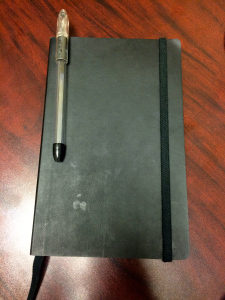Take responsibility. When you lose a hand or game, ask yourself where you could have played better. Yes, your opponents will often make Calls they shouldn’t according to the odds they are given. And when they make their hand by drawing out on you it can be tough to take.
But still ask yourself what you should have done differently.
Maybe you were semi-bluffing your own drawing hand against a player you know always calls, even if there are only holding bottom pair. Against this kind of player, it would be better to check. Especially if this player is not aggressive and unlikely to throw out a bet themselves. Check and draw a free card.
If you are so focused on being upset that your opponents are calling bets you ‘know’ they shouldn’t, you will not be able to see this was an option.
It’s better to ask yourself how you should have played differently.
When you win, ask yourself the same question. Recognize when you simply got lucky in spite of making a bad play. You may have won this time, but unless you acknowledge it was a bad play and make note to adjust your game, next time it will likely hurt.
Here’s To A Life Of Fun & Games,



